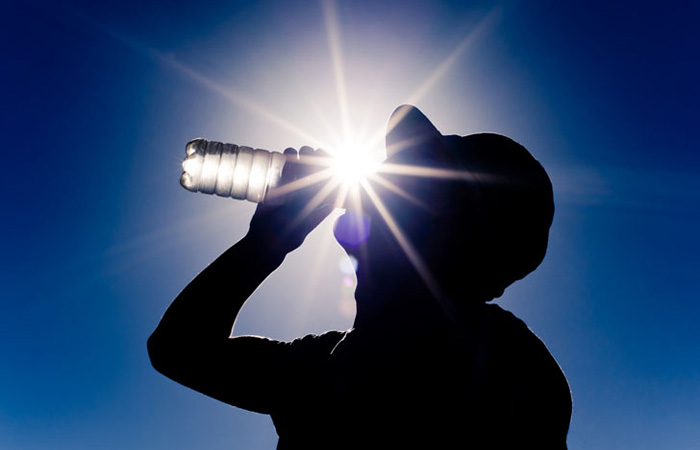Hotter weather is here and Manitoba Health, Seniors and Long-Term Care is reminding Manitobans to make heat health part of their summer planning by knowing the health-related risks of heat, taking precautions to prevent overheating and learning how to recognize and respond to symptoms of heat illness.
Heat illness can cause a variety of symptoms including:
- headache;
- nausea;
- dizziness;
- weakness or tiredness;
- muscle cramps; or
- rapid breathing or pulse.
Anyone experiencing these symptoms should move to a cool or shaded place, lie down, drink water and use cold compresses. If someone loses consciousness, has confusion or red, hot and dry skin, call 911.
Everyone is at risk for heat illness, especially during prolonged periods of high heat and humidity. However, the risks are greater for older adults, infants and young children, people who spend a lot of time outdoors, people with chronic conditions and people living alone, especially if they are living in an urban area or do not have air conditioning. People unaccustomed to high temperatures are also at higher risk.
Manitobans are encouraged to check in regularly with vulnerable or isolated friends and family who might be at risk.
All Manitobans can take care to prevent heat illness by:
- drinking plenty of liquids, especially water, before feeling thirsty;
- avoiding prolonged sun exposure;
- cancelling outdoor activities or rescheduling them to cooler times of the day;
- taking more breaks and staying well hydrated if working outdoors;
- wearing loose-fitting, light-coloured clothing and a wide-brimmed hat;
- limiting alcohol consumption;
- blocking sun out at home during the day by closing awnings, curtains or blinds;
- taking a cool shower or bath; or
- going to a cool place such as a mall, community centre, public library or place of worship.
If planning on being outside all day at an outdoor event, such as the Winnipeg Folk Festival, take time stay safe:
- drink water frequently, make sure you bring water and know where to get more water;
- when you can, reduce your sun time: seek shade, go to cooling sites or sprinklers;
- make your own shade: wear a brimmed hat, use an umbrella; and
- know where to seek first aid.
Heat waves may coincide with wildfires and poor air quality. If planning to stay indoor during those conditions, it may be safer to keep windows open to stay cool. For most people, heat exposure is more dangerous than smoke.
For more information on heat and health, call Health Links-Info Santé at 204-788-8200 or toll-free 1-888-315-9257 or visit manitoba.ca.





